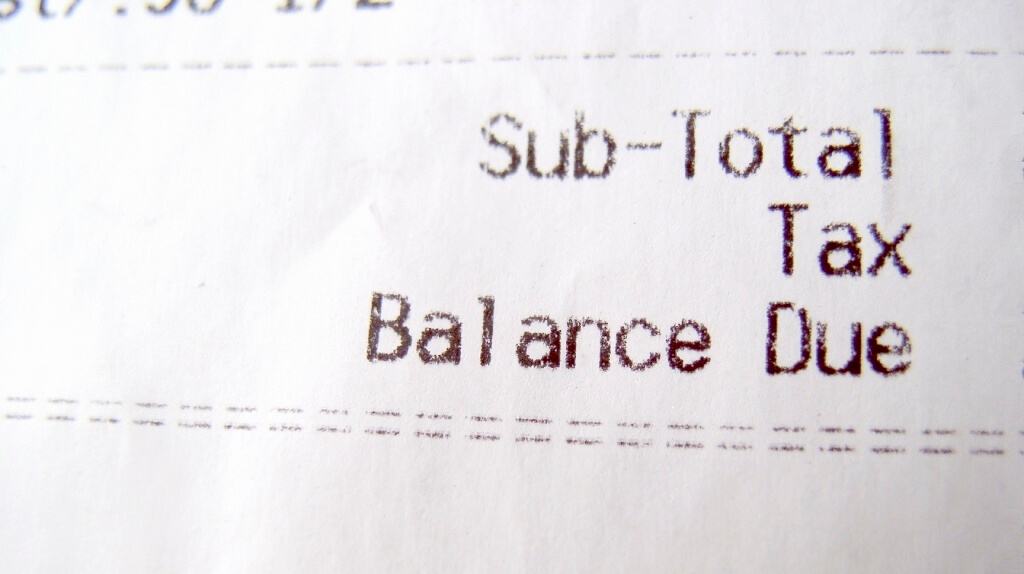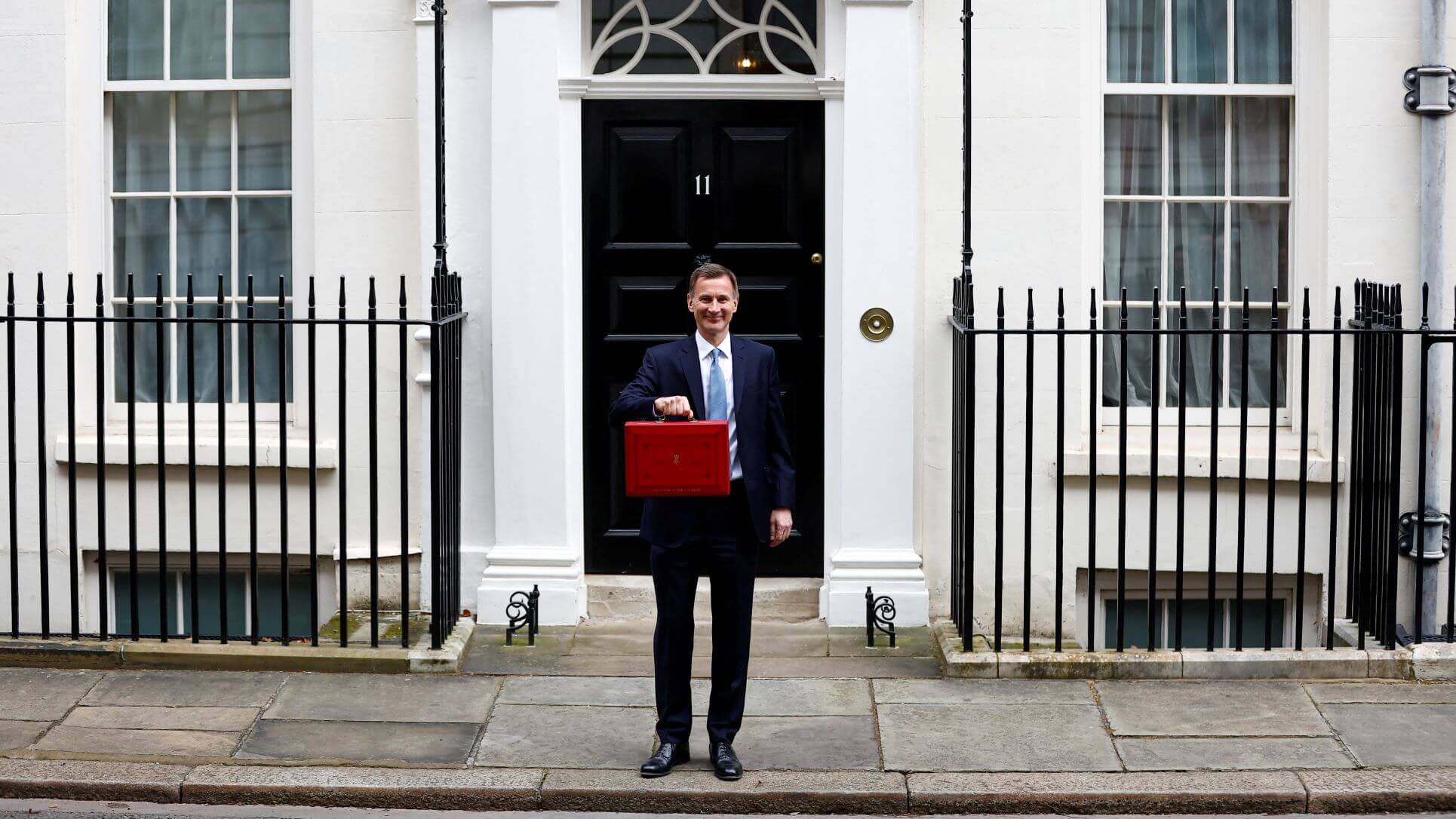Six Tax Planning Tips For Freelancers
Tax is the worst bit of running a business. So here are a six useful tips to reduce the pain.

Do you remember the moment you decided to become self-employed? Was it the idea of working from home, being your own boss or deciding which projects to work on, (and which ones you don’t) that appealed to you? Whatever the deciding factor was in your decision to go freelance, we’re pretty sure managing your own finances wasn’t top of the list.
Filing your tax return by 31 January is, unfortunately, an unavoidable chore that can quickly cause the freelance dream to turn sour. Creative freelancer Dave Legion struggled for years to find a simple solution before deciding to do something about it himself. So he designed an app that made it easy for freelancers like him to know how much tax they owe - and how much cash flow they have in real time.
The time for making New Year resolutions may have come and gone, but the start of the new tax year on 6 April is the ideal time to make some positive financial changes that will leave you more time to focus on the things you enjoy doing most.
Here are my top six tips on becoming more tax savvy:
1. Record as you go
Apparently, if you do something 21 times, it will become new habit. Getting into the habit of tracking and recording your expenses is one of the best things you can do for yourself, your business and your sanity.
Every year, freelancers can miss out on hundreds of allowable business expenses because of lost, washed and accidently-binned receipts. Making sure you note an expense as soon as possible could save you hours of time in the long term.
That way, you literally don’t have to worry about it again for the rest of your life – so no more rummaging through car doors or trouser pockets.
2. Go paperless
Although lots of people prefer to keep receipts for their own peace of mind, organising and filing them throughout the year can be a real nightmare. Luckily for those of you who are more disorganised than others, you don’t have to save all your receipts in hardcopy form any more. HMRC now accepts pictures of receipts in your return; just remember to back them up in case of emergencies.
It’s also wise to keep the files well indexed using a trusted system that makes sense to you. Rather than saving an image as a random number, be sure to include the full date and receipt reference in the title (e.g. 11/05/2016. Fuel.) This is something your future self will thank you for as the January deadline looms, trust me.
3. Play catch up
No matter how many systems you put in place to organise your finances, it’s inevitable that you will sometimes wander off of your perfectly-laid track. The important thing is you understand and recognise when you’re wandering and make a conscious effort to get back on track as soon as possible. If you don’t stay on top of things, you can find yourself weeks, even months behind and feeling less willing to catch up by the day.
Try to set aside just 10 minutes out of your day to sit down and record as many of those receipts as you can. Remember, the longer you avoid this, the longer you’ll be playing catch up and the less time you’ll be able to spend doing the things you love most about your job.
4. Know your expenses
Lots of freelancers fall into the trap of not really knowing what they can claim for, and instead worry about claiming for things they shouldn’t. There’s no fixed list of expenses because almost anything can be treated as one - if you purchased something you will use in the running of your business, it’s an expense.
You might fret about claiming against an expense that you’ll actually get some personal enjoyment out of, for instance a new laptop or online tutorial service, but HMRC isn’t always the villain. For example, did you know that you can claim expenses for using your home as an office?
Say you have four rooms in your home, one of which you only use as an office. Your electricity bill for the year is £400. Assuming all the rooms in your home use equal amounts of electricity, you can claim £100 as allowable expenses (£400 divided by four). If you worked only one day a week from home, you could claim £14.29 as allowable expenses (£100 divided by seven).
5. Don’t wait until the last minute to file your tax return
There are 4.5 million self-employed workers in the UK. In 2015 one million of these people left filing their tax return until the last day. A further 890,000 missed the deadline completely and received a £100 fine as a result.
I know you’re probably tired of hearing this by now, but don’t leave it all to the last minute. Registration for tax purposes is not as simple as the real-time sign-ups we’ve grown accustomed to.
It takes two weeks to receive your Unique Tax Reference number, and 28 days for your Government Gateway login. Think of all the different things you could do with £100 rather than spend it on a fine…
6. Get a system in place
None of these TTT’S (that’s Top Tax Tips) are of any use without a way to implement them. Ultimately, it doesn’t matter which mechanisms you choose to keep your finances in order, as long it’s effortless, repeatable and you can see yourself sticking with it for the foreseeable future.
It’s okay to put off the things you don’t like doing for something a little easier and more enjoyable. But by putting off the unavoidable, such as paying your taxes, you are setting yourself up for a world of pain. Remember, record as you go. Make it a healthy habit. Play catch up.
Find a system that works for you and don’t try avoid the unavoidable. Now, when 31 Jan next comes around, you can thank your past self for giving you the day off.
Luckily, for those who work on a freelance basis there is a solution - TAXO’D. The app records business transactions, calculates your real-time tax bill, profit and loss and files your tax return.
Yes, I created the tool, but only because I couldn’t find a system that best suited me. It’s available online and on iOS and Android platforms.
Thanks for signing up to Minutehack alerts.
Brilliant editorials heading your way soon.
Okay, Thanks!




